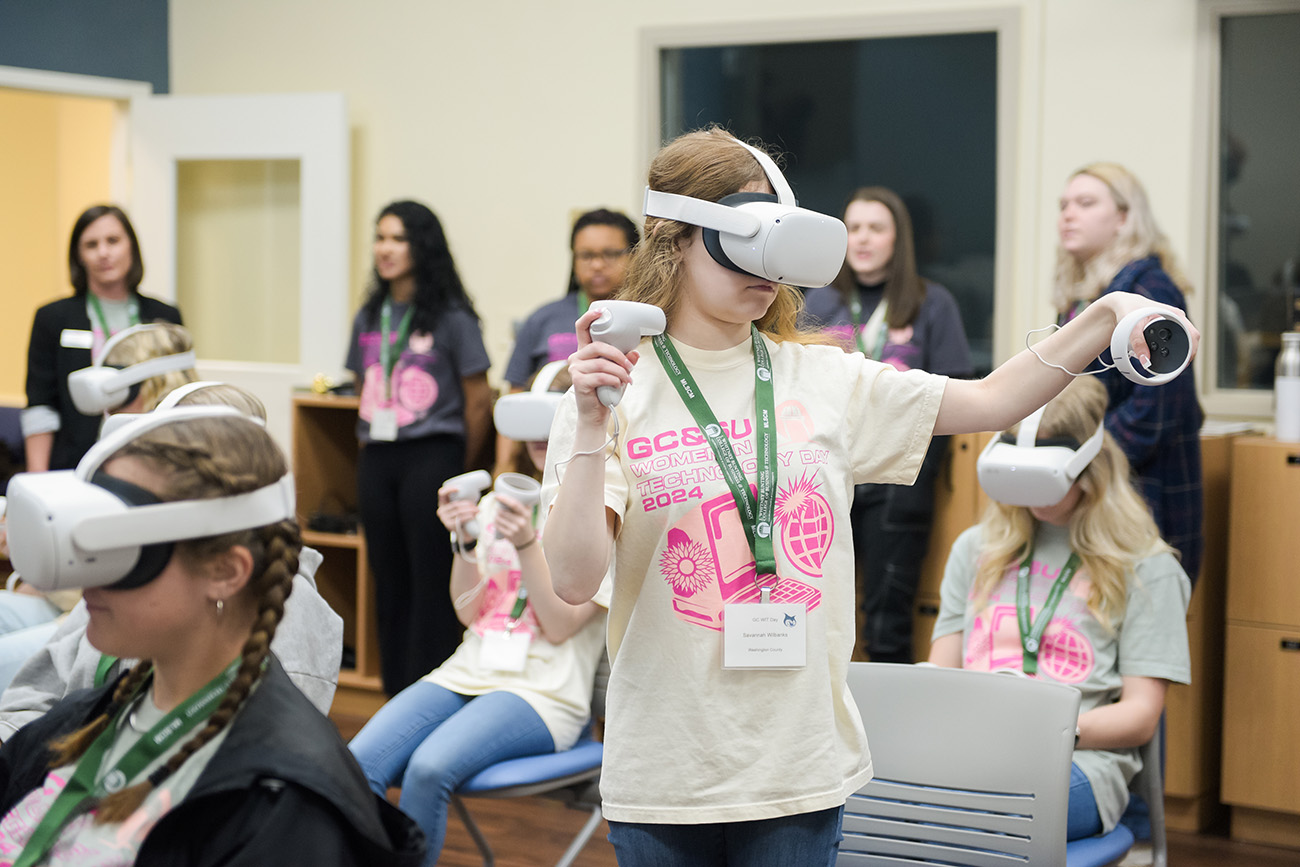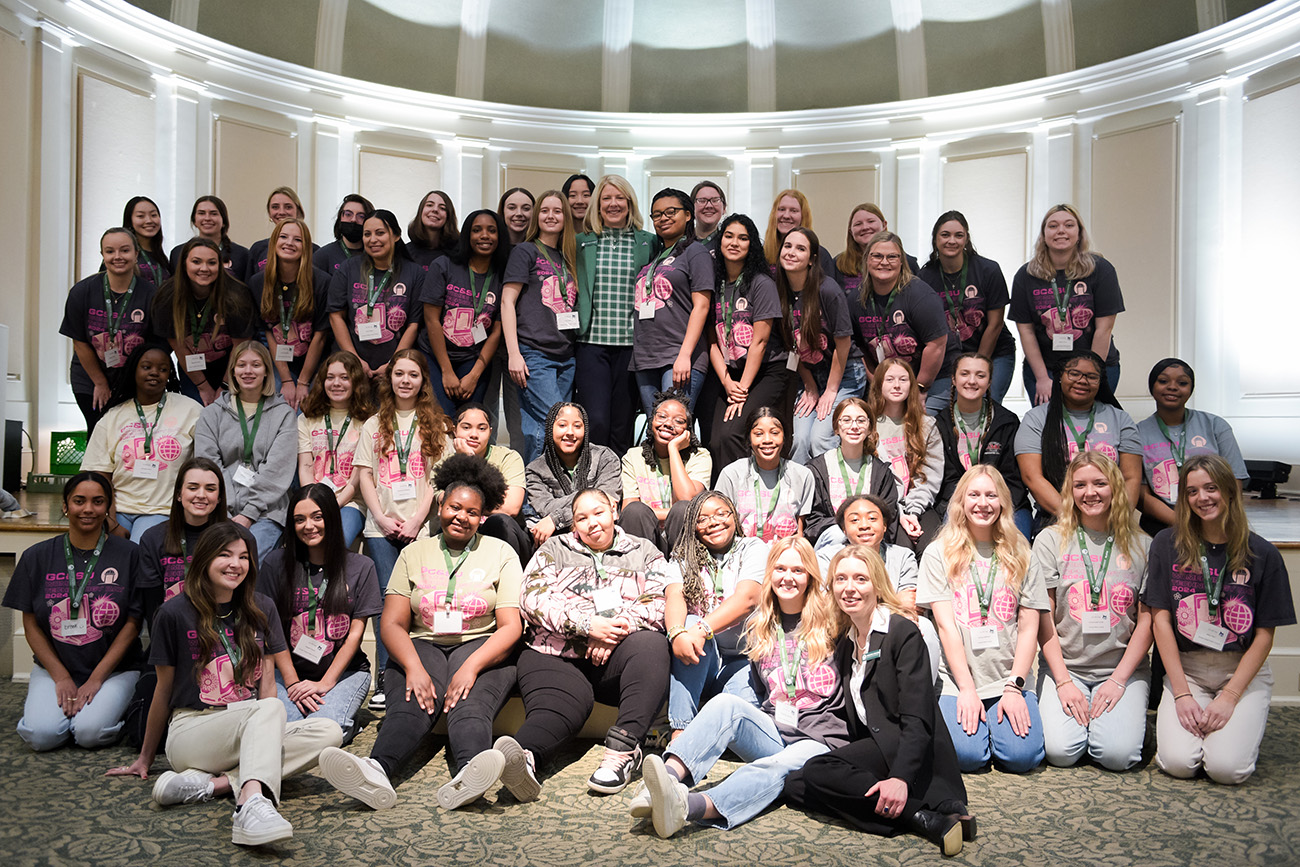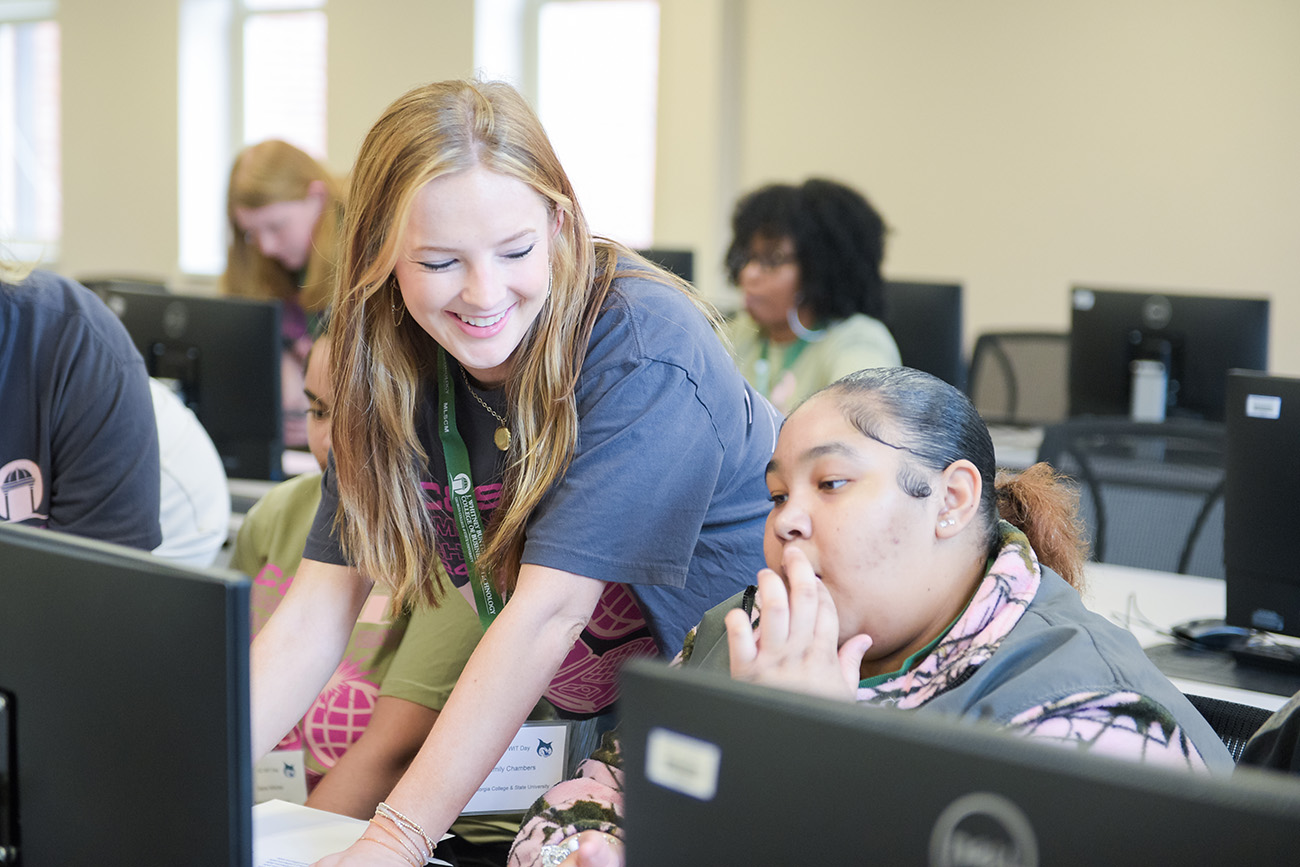Grace Hopper and TAPIA celebrations pave the way for women in computing
Story by GCSU senior Cale Strickland.
F rom smartphones to social media to artificial intelligence, the technology industry is critical to our day-to-day lives. But it is not representative of our society.
“It’s so heavily male-driven still,” said Jeannie Pridmore, chair of Georgia College & State University’s Department of Information Systems & Computer Science. “I mean, if you look at the field of computing as a whole, it’s about 24% female. If you look at the market, only about 24% of the jobs are held by females. And when you look at going up the ladder, or you look at other demographics, like color or ethnicity, it drops down to like 3%.”
She says the long-term goal is for the field to be 30% female.
“There’s something magic about that 30% number,” Pridmore said. “When you get at least 30% diversity in the population, it changes the systemic view and thought of what’s happening. Once you reach 30%, it’s no longer the one woman in the room; now, it’s three women in the room.”

In an effort to improve representation overall, the department sends female, non-binary and minority students to two conferences: the Grace Hopper Celebration of Computing, or Grace Hopper Conference, and the CMD-IT/ACM Richard Tapia Celebration of Diversity in Computing Conference, or TAPIA.
Grace Hopper is for female and non-binary students; TAPIA is for minority male students.
Last year, the department sent 25 students to Grace Hopper and four to TAPIA.
Madison Farmer, a senior management information systems major, landed a full-time job at last year’s conference and found the on-site interview process refreshing and reassuring.
“Going into my career post-graduation, I had nothing but a team of female interviewers when it came to my job that I have lined up for July,” Farmer said. “Seeing that everybody on my team is very diverse in both gender and ethnicity, race, it’s very welcoming, in a sense, considering I had two female employees kind of lead me in the direction. I was able to get the job through them, so it’s kind of more reassuring that I feel like I’ll be more welcomed there.”
Junior MIS major Richa Moses still has a little over a year to line up an internship or full-time job. She says the conference made her more confident in herself and her career path.
“I felt completely empowered,” Moses said. “I felt like such a superwoman there, just being and hearing their journeys, and the best part about that environment was how these women — who are in great positions — really humbled themselves to speak to us, to encourage us and to be able to share about their journey with us. And just staying in that environment, I definitely was like, “OK, I chose the right path, and I’m not alone in this.’”
Margeaux Messier, a senior MIS major, left the conference feeling optimistic about the possibilities within the industry.
“Grace Hopper helped me prepare for my future career by showing me that, honestly, the sky’s the limit,” Messier said. “We are going to define our own past, and if you’re a hard worker, and if you are dedicated to pushing this goal and pushing this dream and making that a reality, then really, there’s nothing that’s ever going to stop you.”
The Women in Technology Club hosted Women in Technology Day Friday, Feb. 23. GCSU students walked local high school students through workshops in an effort to increase young women’s interest in technology.

Pridmore hopes the event and the conference will create a cycle: increasing female interest in technology, providing them with opportunities to succeed, both in the classroom and in the workforce, and giving back to the girls who come after them.
“Seeing how our school, in particular, is very supportive of the women and non-binary individuals going into this field, and they’re wanting us to succeed and find that job or internship and get that valuable experience out of it, I’m very thankful for it,” Farmer said.
